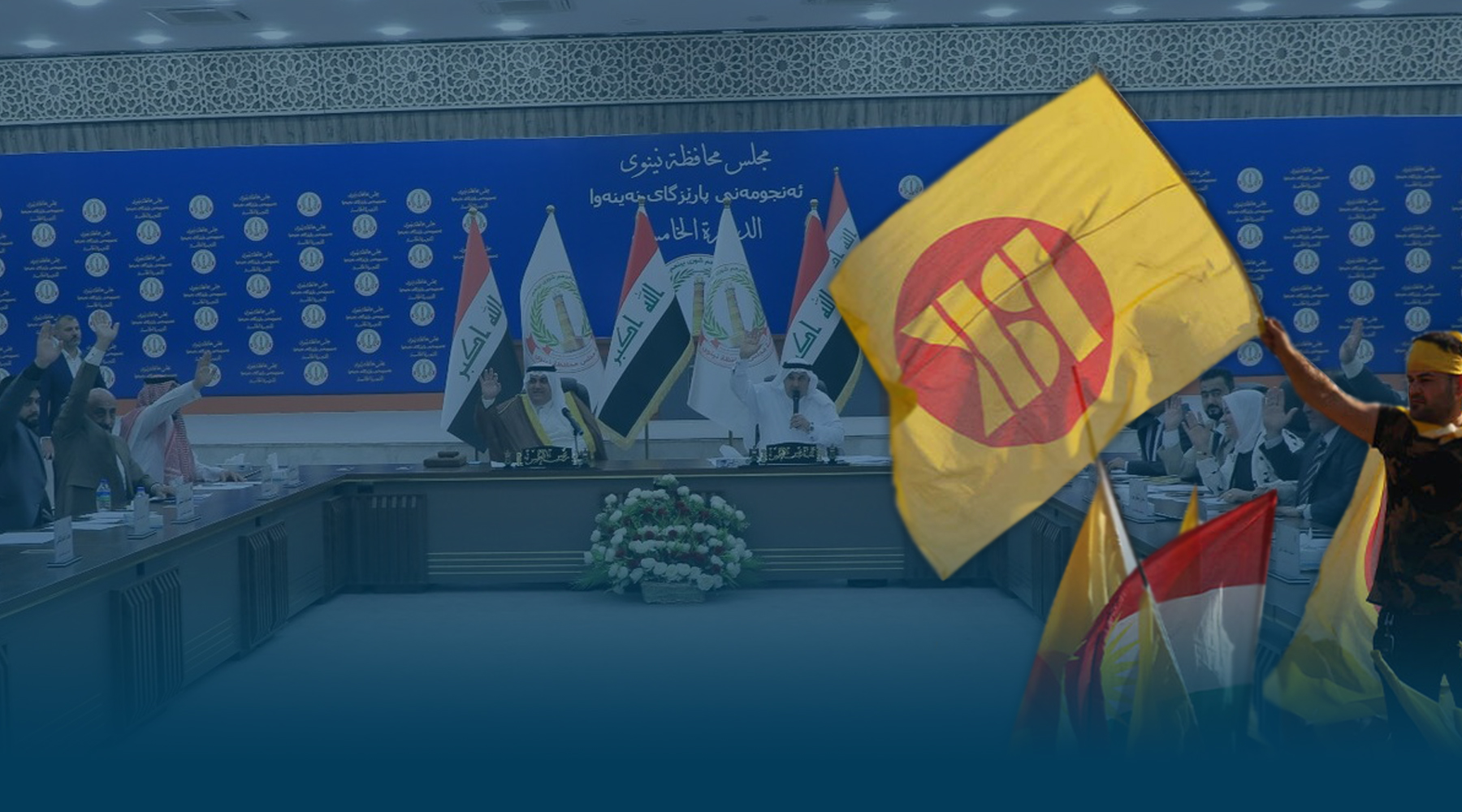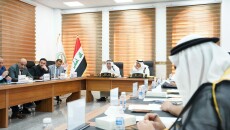The Kurdistan Democratic Party (KDP) and the Nineveh Unified (Muwahada) Coalition have rejected an initiative by the speaker of the Nineveh provincial council to end the crisis in the province.
The 29-member Nineveh provincial council has been divided into two opposing fronts since July 2, after the election of the heads of administrative units, which sparked protests from half of its members, including the (KDP) and the Nineveh Unified Coalition.
Last week, Ahmad al-Hassoud, the Council Speaker, initiated a meeting of all the winning parties to resolve the crisis.
Mohammed Jassim, a member of the Nineveh provincial council from the Patriotic Union of Kurdistan (PUK) faction, told KirkukNow that the initiative is to restore the rights of those whose rights were violated at the July 2nd meeting.
The initiative is to restore the rights of those whose rights were violated
"The initiative was to give all the winning parties positions according to their seats, but again the KDP and the Nineveh Unified Coalition refused to participate," Jassim said.
The council is divided into two factions. The first is the Future Nineveh Alliance, which successfully elected the heads of the administrative units holding 16 out of 29 total seats. This faction comprises the Coordination Framework forces, the Patriotic Union of Kurdistan PUK bloc, Sunni members, and three minority quota members.
The second faction consists of the United Nineveh Alliance and the KDP, holding 13 seats.
The Presidency of the Council was elected months ago as part of a single package with the positions of the governor and his two deputies, according to an agreement between all the blocs, including the United Nineveh Alliance.
The KDP says they seek guarantees through agreement by senior official of the parties in Baghdad.
Ahmad Kiki, head of the (KDP) faction in the Nineveh provincial council, told KirkukNow that the council speaker himself is a major part of the problems.
"Once a high-level strategic agreement is reached and we are fully assured that we will not face any further problems and the July 2 incident will not be repeated, we will return to the council meetings," he said.
The Kurds have six seats in the current provincial council of Nineveh (four for the KDP and two for the PUK) out of 29 seats, so they have only the post of the first deputy governor while they previously had a council speaker and deputy governor.
The (KDP), which has four seats, has one mayor and five sub-district directors in ten districts and 21 sub-districts in Nineveh province.
It has lost both the mayors of Shingal (Sinjar), home for the no-Msulim Ezidi (Yazidi) community, and Makhmur, but was given only the mayor of Sheikhan.
The July 2 session, attended by 16 out of 29 members of the council, held elections for 20 posts of district mayors and sub-district administrators in Nineveh, boycotted by the (KDP) and the Nineveh Unified Coalition, whom together have 13 council seats.
"Six administrative posts have been allocated to the KDP. What more can be done?" Jassim told KirkukNow.
"Everyone is trying to resolve the issues, but the KDP is not satisfied. They want this stalemate to continue."
The Nineveh Unified Bloc had half the votes of the governorate’s voters (449,980 votes out of a total of 909,269 votes) and 13 seats, but it was in need for two more seats to be able to form the local government, as the election law requires ensuring a majority (50 + 1), meaning at least 15 seats out of the 29 seats in the Nineveh Provincial Council to elect the governor and the head of the council.
*This story has been produced as part of the 'Budget is Your Right' initiative, with support from the National Democratic Institute (NDI).






